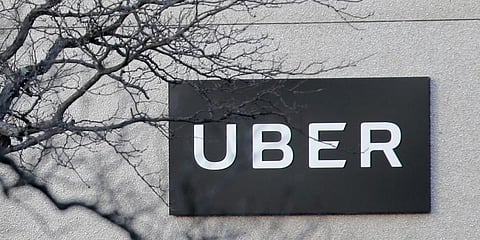

LONDON: Uber drivers in Britain should be classed as “workers" and not self-employed, the U.K. Supreme Court ruled Friday, in a decision that threatens its business model and holds broader implications for the so-called gig economy.
The ruling entitles Uber drivers to benefits such as paid holidays and the minimum wage, handing defeat to the ride-hailing giant in the culmination of a long-running legal battle.
The Supreme Court's seven judges unanimously rejected Uber's appeal against a lower court ruling, which had found that two Uber drivers were “workers" under British law.
“The employment tribunal was right to find that Uber drivers are workers who therefore qualify for the rights conferred on workers by employment legislation,” said judge George Leggatt, as he read out a summary of the ruling on a court livestream.
Among their reasons, the judges cited Uber's driver rating and its practice of keeping communications between drivers and passengers to a minimum, which results in the service being “very tightly defined and controlled by Uber.”
“Drivers are in a position of subordination and dependency to Uber," with little ability to improve their economic position. They only way to increase their earnings is by “working longer hours while constantly meeting Uber's measures of performance," the court said.
Uber, which has 65,000 active drivers in the U.K., had argued that the two drivers who brought the case were independent contractors.
The company said it respected the court's decision, which it argued focused on a small number of drivers who used the Uber app in 2016.
“Since then we have made some significant changes to our business, guided by drivers every step of the way,” Jamie Heywood, Uber’s Regional General Manager for Northern and Eastern Europe, said in a statement. “These include giving even more control over how they earn and providing new protections like free insurance in case of sickness or injury.”
Shares in Uber were down by more than 3% in premarket trading in New York.